Applications | Rheumatology
Rheumatology
Discover altered metabolic pathways in rheumatic diseases with metabolomics.

Used By







Featured Rheumatology Resources

Metabolomics in Rheumatology
Rheumatology is broadly defined as a branch of medicine focused on a suite of disorders with a common feature: inflammation of the bones, muscles, joints, and internal organs. These diseases include several types of arthritis (rheumatoid, reactive, psoriatic, and enteropathic), several types of polyangiitis (granulomatous, microscopic, eosinophilic granulomatosis), arteritis, fibromyalgia, osteoporosis, lupus, and many others.
The diagnosis and treatment of rheumatic diseases are complicated by the complexity of each condition. While significant progress has been made, particularly for rheumatoid arthritis (RA) and spondyloarthritis, connective tissue diseases like Sjögren’s syndrome and systemic lupus erythematosus remain poorly understood and difficult to treat. Generally, the treatment of rheumatic diseases (including RA) suffers from a trial and error approach caused by the lack of reliable, reproducible clinical and biological markers informing the best treatment approaches for specific patients. Many available treatments also pose serious adverse effects, such as liver and medullary toxicity. Clearly, more reliable, safer treatments are necessary, and they are necessary for a wider range of rheumatic diseases.
Metabolomics can help address these gaps by complementing genetic, transcriptomic, and proteomic data to provide a more holistic picture of human health—and what goes wrong during disease. Several studies have implicated altered metabolism—including altered lipid metabolism—in rheumatic diseases, underscoring the importance of metabolic profiling in fully understanding these complex conditions. Furthermore, metabolomics is a powerful approach for the identification of biomarkers in rheumatic diseases, laying the foundation for the “robust biomarker-based treatment models” many rheumatologists believe is the future of improved, individualized care for patients suffering from rheumatic conditions.

Uncover Functional, Actionable Insights with Metabolomics
More research is needed to understand inflammatory diseases, the different physiological impacts they have, and how best to target them therapeutically. Metabolon can help researchers identify biomarkers for developing better disease diagnostics and therapeutics. Global metabolomics can be used to identify a wide range of biomarkers associated with disease severity and progression or track responses to therapeutics and dietary interventions. These insights can then be translated to actionable biomarkers through the use of follow-on targeted panels.
Identification of Predictive Biomarkers
Metabolomics facilitates the discovery of biomarkers associated with rheumatic disease severity and systemic inflammation. By identifying specific metabolites correlated with higher or lower disease activity and systemic inflammation associated with rheumatic disease, researchers can develop diagnostic tools and biomarkers for patient stratification based on disease activity and circulating inflammatory markers. These biomarkers have the potential to revolutionize healthcare and personalized medicine. A large-scale, global metabolomics study of RA patients6 identified several blood metabolites associated with both disease activity (high or low) and systemic inflammation irrespective of treatment. It lays the foundation for further studies on the role of circulating blood metabolites in predicting and tracking pathogenesis of this complex disease.
Hur B, Gupta VK, Huang H. et al. Plasma metabolomic profiling in patients with rheumatoid arthritis identifies biochemical features predictive of quantitative disease activity. Arthritis Res Ther. 2021;23(1):164. doi: 10.1186/s13075-021-02537-4.
Therapeutic Target Identification
Metabolomics helps identify blood metabolites associated with osteoporosis risk. Leveraging metabolomics data from large-scale cohorts can facilitate robust and accurate identification of metabolites that increase an individual’s risk for osteoporosis and target these metabolites as potential therapeutic targets. By computing genetic risk scores for serum metabolites followed by multivariate analysis and metabolic pathway analysis on datasets from the UK Biobank7, researchers identified metabolites enriched in caffeine metabolism; valine, leucine, and isoleucine biosynthesis; aminoacyl-tRNA biosynthesis; alpha linolenic acid; and linoleic acid metabolism as playing a role in osteoporosis progression and development of bone fracture. These data suggest that early dietary and pharmacological interventions could prevent or attenuate osteoporosis progression, including the prevention of bone fracture.
Yu X, Cao R, Yang Y, et al. Systematic evaluation for the causal effects of blood metabolites on osteoporosis: Genetic risk score and Mendelian randomization. Front Public Health. 2022;10:905178. doi: 10.3389/fpubh.2022.905178.
Identification of Potential Dietary Interventions
Metabolomics can help identify dietary interventions that may play a protective role against rheumatic diseases. Importantly, metabolomics data can also help resolve conflicting data across existing studies, enabling researchers to gain a better understanding of the impact of diet on metabolism and disease so that beneficial dietary interventions can be developed. A study8 leveraging two independent cohorts from the Hong Kong Osteoporosis Study (HKOS) evaluated the relationship between bone mineral density (BMD) in osteoporosis and bioactive components in coffee, a beverage associated with a reduced risk for several diseases but with inconsistent associations with BMD. They identified three metabolites—5-acetylamino-6-formylamino-3-methyluracil (AFMU), 3-hydroxyhippurate, and trigonelline—associated with coffee consumption and also with higher BMD in certain areas of the spinal column. These metabolites should serve as the subject of future research on the connection between metabolism and osteoporosis and how our understanding of that connection can be leveraged to treat this debilitating condition.
Chau, Y., Au, P.C.M., Li, G.H.Y.. et al. Serum Metabolome of Coffee Consumption and its Association With Bone Mineral Density: The Hong Kong Osteoporosis Study. J Clin Endocrinol Metab. 2020;105(3):dgz210. doi: 10.1210/clinem/dgz210




Metabolomics Applications for Rheumatology Research
- EBiomarker discovery
- EPersonalized medicine research
- EDisease severity stratification
- EPatient stratification
- EPrediction of disease progression
- EDrug discovery and development
- EDisease risk prediction
- EUnderstanding molecular mechanisms of disease
- EUnderstanding diet-disease associations
“Altered lipid profiles are common in rheumatic diseases…. Little is known about the interactions among lipid metabolism, immune cell function and rheumatic diseases. Immunometabolism may be vital in the development of rheumatic diseases. Given the importance of lipid profiles and metabolism, further investigations about mechanism and therapeutic strategies are urgently needed.”
Cheng, W., Wang, Q., Zhou, B. et al.
Lipid Metabolism Profiles in Rheumatic Diseases. Front Pharmacol 12 (2021). https://doi.org/10.3389/fphar.2021.643520
Identifying Plasma Metabolites that Predict Quantitative Disease Activity in Rheumatoid Arthritis
Rheumatoid arthritis (RA) is a chronic inflammatory autoimmune disease that can cause bone and cartilage erosion, joint deformity, mobility loss, and organ damage. However, both symptoms and treatment responses can vary widely from patient to patient. Regardless of symptoms or treatment response, inflammation plays a key role in RA, and clinical measures for stratifying disease activity often include measures of inflammation, such as C-reactive protein (CRP). Because cellular and tissue metabolism is often disrupted in autoimmune disorders, several studies have explored the potential to leverage metabolic signatures of RA to stratify patients by disease severity. However, until recently, large-scale global metabolomics profiling in RA hadn’t been performed. To address this knowledge gap, researchers profiled the plasma metabolomes of RA patients, correlating them with several clinical measures of disease activity. The results of this study support the use of metabolomics in stratifying RA patients based on disease activity and markers of inflammation.

Figure 1. Venn diagram of all plasma metabolites identified through the multi-approach discovery strategy. A total of 67 unique metabolites were identified, among which 40 were found to have no association with the use of treatment. Notably, eight metabolites (6-bromotryptophan, bilirubin (E,E), biliverdin, glucuronate, N-acetyltryptophan, N-acetyltyrosine, serine, and trigonelline) in bold were not only consistently detected across both analytic approaches, but also found to have no association with any treatment use. Colored circles indicate metabolites whose abundances associate with treatment use. Metabolites with red triangles were found to have increasing abundances with worsening disease activity, whereas metabolites with blue triangles were found to have decreasing abundances with worsening disease activity.
The research group used Metabolon’s Global Discovery Platform to profile 128 plasma metabolomes from 64 RA patients plus a validation cohort of 12 additional RA patients. From the resulting data, the researchers were able to identify key metabolites associated with disease activity and circulating CRP levels, suggesting that blood metabolomics may serve as a valid method for monitoring both disease progression and systemic inflammation in RA. This study was the first plasma metabolomics study performed in RA to demonstrate the predictive value of blood metabolites for RA disease activity and associated systemic inflammation. Metabolon helped the researchers identify key metabolites, including several that have been previously implicated in RA. Further studies can solidify the role of circulating blood metabolites in predicting and tracking pathogenesis of this complex disease.
Hur B, Gupta VK, Huang H. et al. Plasma metabolomic profiling in patients with rheumatoid arthritis identifies biochemical features predictive of quantitative disease activity. Arthritis Res Ther. 2021;23(1):164. doi: 10.1186/s13075-021-02537-4.
Rheumatology Publications and Citations
Metabolon has contributed extensively to publications ranging from basic research to clinical trials.
Rheumatology Knowledge Base
Dive deeper by viewing our case studies and webinars. Learn more about how Metabolon furthers rheumatology research and check back for more to stay up to date on the latest developments in metabolomics in rheumatology.
Contact Us
Talk with an expert
Request a quote for our services, get more information on sample types and handling procedures, request a letter of support, or submit a question about how metabolomics can advance your research.
Corporate Headquarters
617 Davis Drive, Suite 100
Morrisville, NC 27560
Mailing Address:
P.O. Box 110407
Research Triangle Park, NC 27709

